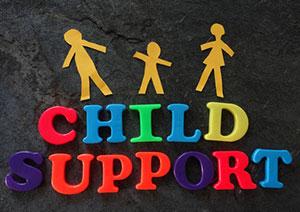630-462-9500
After Hour New Client Telephone Number 630-690-6077
1776 S. Naperville Road, Building B, Suite 202,
Wheaton, IL 60189
Recent Blog Posts
What You Need to Know About Divorce After a Long-term Marriage
 Although the overall divorce rate in the United States has been declining, there is one demographic that is getting divorced more now than ever before. People over age 50 are divorcing at a rate which is double what it was 30 years ago. Some of these divorces involve couples who were married for 10, 20, or even 30+ years. Deciding to get a divorce after a long marriage can be one of the hardest choices a person ever makes. Leaving the comfort of a familiar relationship to find a happier life as a single person can be understandably intimidating. In addition, spouses who divorce after a long marriage must consider issues that other couples may not need to worry about.
Although the overall divorce rate in the United States has been declining, there is one demographic that is getting divorced more now than ever before. People over age 50 are divorcing at a rate which is double what it was 30 years ago. Some of these divorces involve couples who were married for 10, 20, or even 30+ years. Deciding to get a divorce after a long marriage can be one of the hardest choices a person ever makes. Leaving the comfort of a familiar relationship to find a happier life as a single person can be understandably intimidating. In addition, spouses who divorce after a long marriage must consider issues that other couples may not need to worry about.
Adjusting to the Change May Be Emotionally Strenuous
While any divorce is going to involve a degree of emotional and psychological stress, ending a long marriage can be especially difficult. If you and your spouse have been together for many years, adjusting to life without that person can be painful – even if you are the one who initiated the separation. Experts encourage individuals going through divorce after a long marriage to consider finding additional sources of support. This may include speaking with a counselor, joining a support group, or simply reaching out to friends and family that you trust.
Suggestions On What May Be Done If You Lose Your Job
If you have recently been laid off, furloughed or terminated from your employment and you have a child support or maintenance obligation, you may want to consider the filing of a petition to modify those payments. Section 510 of the Illinois Marriage and Dissolution of Marriage Act provides that child support and maintenance may be modified upon a showing of a substantial change in circumstances. However, the modification can only be made retroactive to the date of filing and notice.
No one is certain of the long-term ramifications of the COVID-19 pandemic. The length of a furlough, or layoff, or time between jobs may be longer than initially expected. Complying with court orders is required and regardless of the circumstances, the court can do nothing to reduce the amount that you will ultimately owe until you have a petition on file. Loss of employment under current conditions will most likely be considered a substantial change in circumstances. However, no relief can be granted unless it is asked for. If circumstances do not improve, addressing the issue early may prevent financial catastrophe later. If all improve, the petition can be withdrawn. Do the best you can but protect yourself long-term.
What Happens if an Illinois Adoption Is Contested?
 Deciding to adopt a child can be one of the most rewarding decisions a person ever makes. Unfortunately, the legal process of adopting a child can often be very complicated. Even if the adoptive parents take every step possible to help the adoption proceed smoothly, it is possible that the adoption may be contested or disputed by another party. If you are planning to adopt a child, and you are concerned that the child's biological parent or another party may contest the adoption, contact a lawyer experienced in adoption issues as soon as possible.
Deciding to adopt a child can be one of the most rewarding decisions a person ever makes. Unfortunately, the legal process of adopting a child can often be very complicated. Even if the adoptive parents take every step possible to help the adoption proceed smoothly, it is possible that the adoption may be contested or disputed by another party. If you are planning to adopt a child, and you are concerned that the child's biological parent or another party may contest the adoption, contact a lawyer experienced in adoption issues as soon as possible.
Common Issues That Lead to Contested Adoptions
There are several reasons that an adoption may be contested. In some cases, a biological parent may contest an adoption because they do not want to give up their parental rights. For example, if the child's biological mother never told the father that she had a child, it is possible that the father may not have even known about the child's existence. If a biological father can show that he is willing and able to assume parental responsibilities, it is possible that the adoption process will be terminated. However, if a father knew that he had a child but chose to remain completely uninvolved in the child's life, he may not be granted any parental rights, and the adoption may continue. A father may also lose the right to contest an adoption if he does not contact the child for more than one year or provide child support to address the child's needs. An adoption may also be contested if a biological parent disagrees with a stepparent adoption or if a birth father disagrees with a mother's decision to place an infant up for adoption.
Advantages and Disadvantages of Signing a Prenuptial Agreement
 Prenuptial agreements are legally binding documents that establish and protect spouses' property rights, and they may also address spousal maintenance and other matters. Because many of the provisions in a prenuptial agreement only become effective if a couple divorces, prenuptial agreements, or “prenups,” are somewhat controversial. However, research shows that the popularity of prenups has been rising, especially among the millennial generation. Prenuptial agreements offer a range of benefits, but they may not be right for every engaged couple.
Prenuptial agreements are legally binding documents that establish and protect spouses' property rights, and they may also address spousal maintenance and other matters. Because many of the provisions in a prenuptial agreement only become effective if a couple divorces, prenuptial agreements, or “prenups,” are somewhat controversial. However, research shows that the popularity of prenups has been rising, especially among the millennial generation. Prenuptial agreements offer a range of benefits, but they may not be right for every engaged couple.
Rights and Responsibilities Addressed by Prenuptial Agreements
A prenuptial agreement is a contract that lists each party's property and specifies the parties' property rights in the event that the marriage ends. When a couple sits down to draft a prenuptial agreement, they will need to list all of the assets and debts that they currently own. Many couples find that this inventory process is beneficial in itself because it starts the marriage off with a degree of financial transparency and honesty that is absent in many relationships.
How Do Children From a Previous Relationship Affect Child Support?
 Child support may be ordered to ensure that unmarried or divorcing parents share in the costs of raising their children. Typically, the parent with the majority of parenting time is the recipient of child support paid by the parent with less parenting time. Child support can be an essential resource for providing for children's needs, but it can also be a heavy financial burden on the paying parent. This may be especially true if the paying parent has more than one child support obligation. If you share children with your current spouse and are planning to get a divorce, you may wonder how previous child support obligations will influence any additional child support determinations.
Child support may be ordered to ensure that unmarried or divorcing parents share in the costs of raising their children. Typically, the parent with the majority of parenting time is the recipient of child support paid by the parent with less parenting time. Child support can be an essential resource for providing for children's needs, but it can also be a heavy financial burden on the paying parent. This may be especially true if the paying parent has more than one child support obligation. If you share children with your current spouse and are planning to get a divorce, you may wonder how previous child support obligations will influence any additional child support determinations.
How Much Will My Child Support Payment Be?
Along with many other family law modifications, substantial changes to the way Illinois courts calculate child support were instituted in 2017. Child support is no longer simply a percentage of the obligor, or paying parent's, income. Child support orders entered under the updated law are calculated using the Income Shares Model, which takes both parents' income and other factors into account. Child support payments are now calculated using the following steps:
3 Reasons to Consider Mediation During Your Child Custody Dispute
 When parents get divorced, determining child custody arrangements is often their top priority. It can be extremely difficult for parents who are used to seeing their children every day to transition to a parenting time schedule in which they only see their children part of the time. In Illinois child custody disputes, parents will need to make decisions about the “allocation of parental responsibilities” as well as the amount of time the child spends with each parent, called “parenting time.” Disagreements about these issues can quickly become antagonistic and unproductive. Mediation is one option for parents who are struggling to reach an agreement about child custody concerns. This method of alternative dispute resolution may help you and your child's other parent reach an agreement about child custody and other child-related disputes. There are a number of good reasons to consider mediation, including:
When parents get divorced, determining child custody arrangements is often their top priority. It can be extremely difficult for parents who are used to seeing their children every day to transition to a parenting time schedule in which they only see their children part of the time. In Illinois child custody disputes, parents will need to make decisions about the “allocation of parental responsibilities” as well as the amount of time the child spends with each parent, called “parenting time.” Disagreements about these issues can quickly become antagonistic and unproductive. Mediation is one option for parents who are struggling to reach an agreement about child custody concerns. This method of alternative dispute resolution may help you and your child's other parent reach an agreement about child custody and other child-related disputes. There are a number of good reasons to consider mediation, including:
How Does Job Loss Affect Divorce?
 Concerns over the coronavirus have caused some businesses to close their doors. Unfortunately, this means that many people are now out of work. Some of these individuals are only temporarily laid off, while others may need to find new employment. Whether it is due to a layoff or termination, losing your job has the potential to dramatically influence divorce proceedings. Although divorce is typically thought of as the end of a romantic relationship, it is also the end of a financial relationship. Losing your main source of income will likely impact issues such as property division, child support, child custody, spousal maintenance, and other aspects of your divorce.
Concerns over the coronavirus have caused some businesses to close their doors. Unfortunately, this means that many people are now out of work. Some of these individuals are only temporarily laid off, while others may need to find new employment. Whether it is due to a layoff or termination, losing your job has the potential to dramatically influence divorce proceedings. Although divorce is typically thought of as the end of a romantic relationship, it is also the end of a financial relationship. Losing your main source of income will likely impact issues such as property division, child support, child custody, spousal maintenance, and other aspects of your divorce.
The Reason for the Job Loss Matters
When deciding on financial matters in a divorce case, a judge will consider both spouses' financial circumstances. This includes the spouses' income, assets, employability, and other factors. If either spouse has recently lost his or her job, the judge will want to know about the circumstances that led to the job loss. A judge is much more likely to be sympathetic when the job loss was the result of widespread layoffs or a person was otherwise not at fault for losing his or her job. However, if a spouse has lost his or her job because he or she quit or was fired for misconduct, the judge will be much less sympathetic.
How Can I Prepare for a High Conflict Divorce?
 Married couples choose to divorce for countless reasons. Sometimes, spouses simply grow apart or realize that it was a mistake to get married in the first place. In these cases, spouses may not want to be married any longer, but they still have a high level of respect and concern for each other. On the other hand, some divorcing spouses are vengeful and combative. Divorces involving infidelity, deceit, domestic violence, or vindictiveness may require a very different approach than more amicable divorces. If you have reason to believe that your divorce might be hostile, you may wonder if there is anything you can do to start preparing yourself now.
Married couples choose to divorce for countless reasons. Sometimes, spouses simply grow apart or realize that it was a mistake to get married in the first place. In these cases, spouses may not want to be married any longer, but they still have a high level of respect and concern for each other. On the other hand, some divorcing spouses are vengeful and combative. Divorces involving infidelity, deceit, domestic violence, or vindictiveness may require a very different approach than more amicable divorces. If you have reason to believe that your divorce might be hostile, you may wonder if there is anything you can do to start preparing yourself now.
Consider a Guardian Ad Litem
Continuous divorces between parents may involve strong disagreements about child custody and visitation, which are called “the allocation of parental responsibilities” and “parenting time” in Illinois. Illinois courts make decisions in these areas based on what is in the child's best interests. Unfortunately, some parents may attempt to sway the court's decision in their favor by misrepresenting themselves or lying about the other parent. In some child custody disputes, a Guardian Ad Litem is assigned to the case to represent the children's best interests and uncover the true facts of the case. The Guardian Ad Litem may do this by conducting interviews, evaluating parents' homes and interactions with children, and analyzing financial information. You may want to request a Guardian Ad Litem if you have concerns about your spouse's parenting abilities or if you want your child to have a specially-trained advocate.
What Are the Benefits of Establishing Paternity in Illinois?
 Unmarried couples who have a child together face a significantly different set of challenges than married couples with children. When a mother who is married gives birth, her husband is automatically presumed to be the child's father. However, when an unmarried mother gives birth, this presumption does not exist. The father will need to take steps to establish his legal relationship to the child, called establishing paternity. There are numerous benefits to establishing paternity for both the parents and the child. Read on to learn about these advantages and the steps that must be followed to establish paternity in Illinois.
Unmarried couples who have a child together face a significantly different set of challenges than married couples with children. When a mother who is married gives birth, her husband is automatically presumed to be the child's father. However, when an unmarried mother gives birth, this presumption does not exist. The father will need to take steps to establish his legal relationship to the child, called establishing paternity. There are numerous benefits to establishing paternity for both the parents and the child. Read on to learn about these advantages and the steps that must be followed to establish paternity in Illinois.
Children Gain Many Valuable Resources When Paternity Is Established
Until the legal relationship between a child and father is confirmed, the child is not eligible for a number of important benefits. Once paternity has been established, the child will have advantages such as:
When Is Sole Custody Awarded in an Illinois Family Law Case?
 In 2016, the Illinois Marriage and Dissolution of Marriage Act (IMDMA) underwent major revisions. One of the biggest changes was an update to the language used to describe child custody. Instead of “child custody” and “visitation,” the terms “parental responsibility” and “parenting time” are used to describe parenting duties. Parental responsibilities refers to a parent's authority to make major decisions about a child's education, medical care, and other issues involved in their upbringing, whereas parenting time is the actual time that a parent spends caring for the child. Many divorced and unmarried parents split parental responsibilities and parenting time in a shared parenting arrangement, but some situations may require one parent to take on all of the parental responsibilities and/or parenting time.
In 2016, the Illinois Marriage and Dissolution of Marriage Act (IMDMA) underwent major revisions. One of the biggest changes was an update to the language used to describe child custody. Instead of “child custody” and “visitation,” the terms “parental responsibility” and “parenting time” are used to describe parenting duties. Parental responsibilities refers to a parent's authority to make major decisions about a child's education, medical care, and other issues involved in their upbringing, whereas parenting time is the actual time that a parent spends caring for the child. Many divorced and unmarried parents split parental responsibilities and parenting time in a shared parenting arrangement, but some situations may require one parent to take on all of the parental responsibilities and/or parenting time.
Illinois Courts Typically Encourage Shared Parenting




















